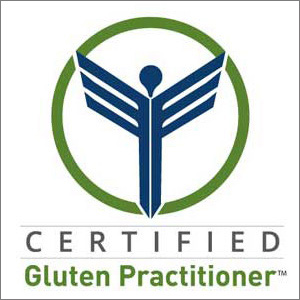 When I first embarked on this gluten-free journey, I didn’t take cross-contamination seriously.
When I first embarked on this gluten-free journey, I didn’t take cross-contamination seriously.
I fought the recommendation to buy a separate toaster because toast wasn’t a regular part of my morning meal, anyway.
Truth be told, cross-contamination sounded like one more hurdle I just didn’t want to deal with.
Yet, a series of unexpected incidents convinced me that I was super sensitive to a great number of things, and at that point I caved.
I’ve never regretted it.
The thing is, food can become contaminated – just take a look at your typical toaster tray if you don’t believe me – it will likely be full of crumbs.
And those crumbs can easily be transferred to your food.
In fact, the reason why oats are forbidden on a gluten-free diet (even though oats are inherently gluten-free) – is because the oats become contaminated simply from being grown close to a nearby wheat field.
This means, if you love eating oatmeal for breakfast, or baking oatmeal cookies – you absolutely must buy the gluten-free oats!
No point in taking any chances, right?
The same goes for restaurant dining.
If your food is cooked on the exact same grill as regular food, especially hamburger buns – or anything breaded – your gluten-free grilled chicken breast will likely pick up some of those residual crumbs.
Many people are extremely sensitive to gluten – the tiniest speck can trigger a cavalcade of symptoms.
And set you back several months, in your quest to quell the inflammation in you body, and ultimately feel human again.
(Totally not worth it, in my opinion).
Of course, a good restaurant will accommodate any requests to prepare your food on a clean grill, or pan.
As an example of how this might play out for you, on a not-too-distant vacation in Hawaii, my husband and I sidled up to the hotel bar one afternoon, during Happy Hour.
I eyed with envy the steamed Edamame (safe) and the house-made Potato-Chips (not necessarily safe) – to accompany a glass of wine.
After inquiring how the chips were made, I learned they were fried in the same oil also used to fry other, breaded foods – a sure sign they would be contaminated with gluten.
However, the waitress was happy to report that a fresh batch could easily be prepared – just for me!
Imagine that – a custom order of house-made potato chips!
This was done by first discarding the previously used, contaminated oil and reheating a fresh supply – and then cooking the new batch of chips before anything else.
As you can imagine, I was absolutely delighted, but in the next instant, I suddenly felt guilty.
Who was I to expect the hotel to go to all that trouble, just for me?
Perhaps you’ve caught yourself doing the same thing?
Please repeat after me:
You are absolutely worth the special treatment!
Of course, there is a postscript to this story.
Despite every precaution, I still paid for my indulgence by feeling less than well for several hours afterward.
Looking back, this was clearly another wake-up call, one that taught me the deep fat fryer was still contaminated and that it wasn’t enough to just change the oil.
In order to have a safe experience, the fryer needed a thorough scrubbing, but unfortunately I hadn’t insisted on that.
Yet this is how most of us learn – through trial and error.
It might not always be pretty, but it’s part of the journey.
And of course, the bottom line is that cross-contamination is a very real concern – one that should never be taken lightly.
Now it’s your turn.
Do you have any stories you’d like to share about your own experiences with contaminated food?
When dining out, do you know that you’re worth the special treatment?
As always, I welcome your ideas and suggestions!
 Follow
Follow


Speak Your Mind